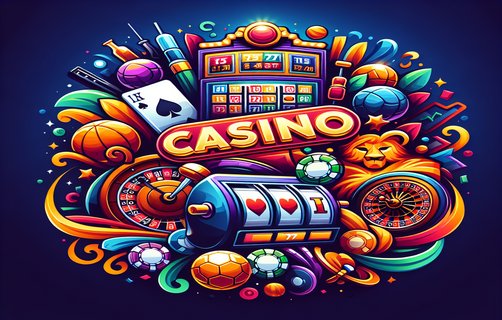Mastering the Mind: An In-Depth Analysis of Mental Resilience in Poker
पोकर में मानसिक सक्रियता: सफलता के लिए एक कुंजी
In the high-stakes world of poker, mental resilience stands as one of the most critical components of success. Players consistently face the emotional rollercoaster of winning and losing, requiring a psychological fortitude that goes beyond mere strategy. Resilience is not just about bouncing back from losses; it's about maintaining focus amidst the chaos and distraction that live games present.
A resilient player adheres to stringent focus management techniques. These include mindfulness practices that help keep emotions in check and clear out distractions. It's not uncommon for poker players to engage in meditation or visualization techniques, fostering a mental state conducive to optimal decision-making. Interestingly, players who manage to stay calm under pressure often separate themselves from their peers, transforming potential tilt from a lost hand into an opportunity for increased concentration.
When it comes to game error handling methods, a successful player must possess acute self-awareness. Accepting mistakes as a part of the learning curve is vital. Instead of succumbing to frustration when things go awry, players should consider maintaining a notebook where they analyze misplays. This kind of self-reflection not only enhances one’s strategic understanding but reinforces resilience as players confront uncomfortable truths about their performance.
Guidelines on amount distribution during games also offer insights into mental strategies. Knowing when to increase the stakes or comfortably fold can often be a manifestation of psychological readiness. A savvy player learns to distribute their chips with an understanding of emotional impact. For instance, an aggressive betting strategy may suit a confident, mentally resilient player, while more conservative strategies may befit someone still building their psychological armor.
Short-term profit techniques are key for maintaining motivation. While the long game in poker is where true skill shines, players often need to achieve smaller victories that can boost morale and provide a sense of accomplishment. Techniques like value betting in favorable situations or participating in smaller, low-stakes games can serve as confidence builders, reinforcing a player's belief in their capabilities.
Understanding player reaction patterns also plays an intricate role in enhancing game performance. Observing changes in opponents' behavior can inform decision-making. For instance, does a player tend to tighten up after a loss? Such reactions can indicate the state of their mental resilience, enabling you to adapt your betting strategies accordingly. Poker, after all, is as much about reading your opponents as it is about your own mental game.
Achieving optimum results in poker is smoother for those who manage to blend mental resilience, effective handling of errors, judicious amount distribution, and an awareness of player dynamics. This holistic approach allows for an adaptable style of play, encouraging players to evolve continuously and remain winners in the uncertain landscape of the poker table.

पोकर की उच्च दांव की दुनिया में, मानसिक सक्रियता सफलता के लिए सबसे महत्वपूर्ण घटकों में से एक है। खिलाड़ी लगातार जीतने और हारने की भावनात्मक रोलरकोस्टर का सामना करते हैं, जो एक मनोवैज्ञानिक मजबूती की आवश्यकता होती है जो केवल रणनीति से परे है। सक्रियता केवल हार से उबरने के बारे में नहीं है; यह उस अराजकता और विकर्षण के बीच ध्यान बनाए रखने के बारे में है जो जीवंत खेल प्रस्तुत करते हैं।
एक सक्रिय खिलाड़ी कड़े ध्यान प्रबंधन तकनीकों का पालन करता है। इनमें ध्यान की प्रथाएँ शामिल हैं जो भावनाओं को नियंत्रण में रखने और विकर्षणों को साफ करने में मदद करती हैं। यह असामान्य नहीं है कि पोकर खिलाड़ी ध्यान या विज़ुअलाइजेशन तकनीकों में संलग्न होते हैं, जिससे उनके निर्णय लेने के लिए अनुकूल मानसिक स्थिति बनी रहे। दिलचस्प बात यह है कि जो खिलाड़ी दबाव में शांत रहने में सक्षम होते हैं, वे अक्सर अपने समकक्षों से अलग हो जाते हैं, संभावित टिल्ट को खोई हुई हाथ से दूर जाते हुए ध्यान केंद्रित करने का अवसर में बदल देते हैं।
गेम त्रुटि हैंडलिंग विधियों के संबंध में, एक सफल खिलाड़ी के पास तात्त्विक आत्म-ज्ञान होना आवश्यक है। गलतियों को सीखने की प्रक्रिया का हिस्सा मान लेना महत्वपूर्ण है। जब चीजें खराब हो जाती हैं, तो निराशा में समर्पण देने के बजाय, खिलाड़ियों को एक नोटबुक रखने पर विचार करना चाहिए donde वे गलत खेल का विश्लेषण कर सकते हैं। इस प्रकार की आत्म-परावर्तन न केवल किसी के रणनीतिक समझ को सुधारती है बल्कि खिलाड़ी प्रदर्शन के बारे में असुविधाजनक सच्चाइयों का सामना करने के दौरान सक्रियता को भी मजबूत करती है।
खेलों के दौरान राशि वितरण के दिशानिर्देश मानसिक रणनीतियों में भी अंतर्दृष्टि प्रदान करते हैं। यह जानना कि दांव बढ़ाने या आराम से पेशकश करने का सही समय कब है, अक्सर मनोवैज्ञानिक तैयारी की अभिव्यक्ति होती है। एक चतुर खिलाड़ी अपनी चिप्स को इस समझ के साथ वितरित करना सीखता है कि भावनात्मक प्रभाव क्या है। उदाहरण के लिए, एक आक्रामक दांव रणनीति आत्मविश्वासी, मानसिक रूप से सक्रिय खिलाड़ी के लिए उपयुक्त हो सकती है, जबकि अधिक संवेदनशील रणनीतियाँ उस व्यक्ति के लिए उपयुक्त हो सकती हैं जो अभी भी अपनी मानसिक कवच को बना रहा है।
संक्षिप्त अवधि में लाभ के लिए तकनीकें प्रेरणा बनाए रखने के लिए महत्वपूर्ण हैं। जबकि पोकर में लंबा खेल सच्चे कौशल को उजागर करता है, खिलाड़ियों को अक्सर छोटे-विजयों की आवश्यकता होती है जो मनोबल को बढ़ा सकें और उपलब्धि का अनुभव प्रदान कर सकें। अनुकूल परिस्थितियों में मूल्य दांव लगाने या छोटे, कम-दांव के खेलों में भाग लेने जैसी तकनीकें आत्मविश्वास को बढ़ावा देने में मदद कर सकती हैं, खिलाड़ी की क्षमताओं में विश्वास को मजबूत कर सकती हैं।

खिलाड़ी प्रतिक्रिया पैटर्न को समझना भी खेल प्रदर्शन को बढ़ाने में जटिलता का कार्य करता है। विपक्षियों के व्यवहार में परिवर्तनों का अवलोकन निर्णय-निर्माण को सूचित कर सकता है। उदाहरण के लिए, क्या एक खिलाड़ी हार के बाद कड़ा हो जाता है? ऐसे प्रतिक्रियाएँ उनके मानसिक सक्रियता की अवस्था का संकेत दे सकती हैं, जिससे आप अपने दांव रणनीतियों को तदनुसार समायोजित कर सकते हैं। आखिरकार, पोकर अपने विपक्षियों को पढ़ने के साथ-साथ अपनी मानसिक खेल के बारे में भी है।
पोकर में सर्वोत्तम परिणाम हासिल करना उन लोगों के लिए आसान होता है जो मानसिक सक्रियता, त्रुटियों के प्रभावी निपटान, विवेकपूर्ण राशि वितरण और खिलाड़ी डायनामिक्स के प्रति जागरूकता को मिलाने में सक्षम होते हैं। यह समग्र दृष्टिकोण खेलने की एक अनुकूल शैली की सुविधा देता है, खिलाड़ियों को निरंतर विकास करने और पोकर टेबल के अनिश्चित परिदृश्य में विजेता बने रहने के लिए प्रेरित करता है।

comments
FlopGuru
This analysis really gets to the heart of what it means to be a successful poker player!
RaiseYourGame
I've never thought about mindfulness in poker—what a game-changer!
ChipStackChallenger
The idea of tracking errors in a notebook is brilliant. I'm definitely going to try that.
AceInTheHole
Understanding opponent behavior can really take you to the next level.
PokerPhilosopher
Emotional management is key! This article captures the essence beautifully.
BettingNinja
I can't wait to implement these strategies next game night!